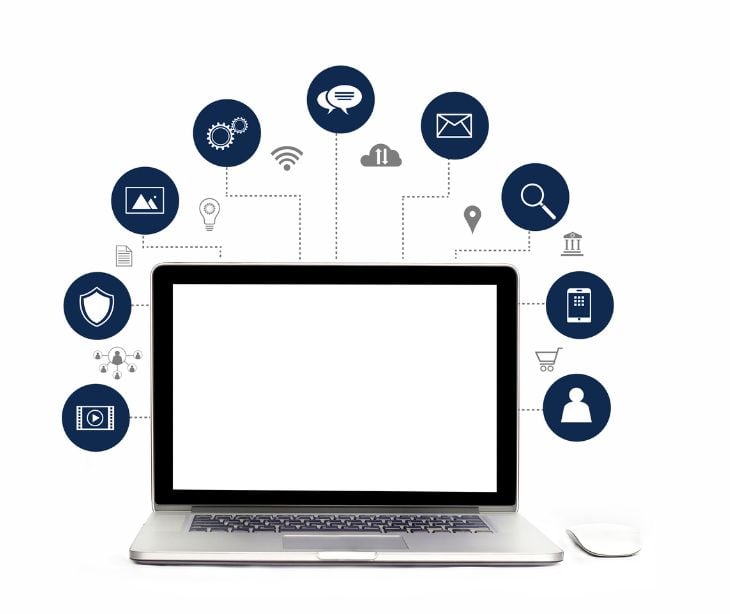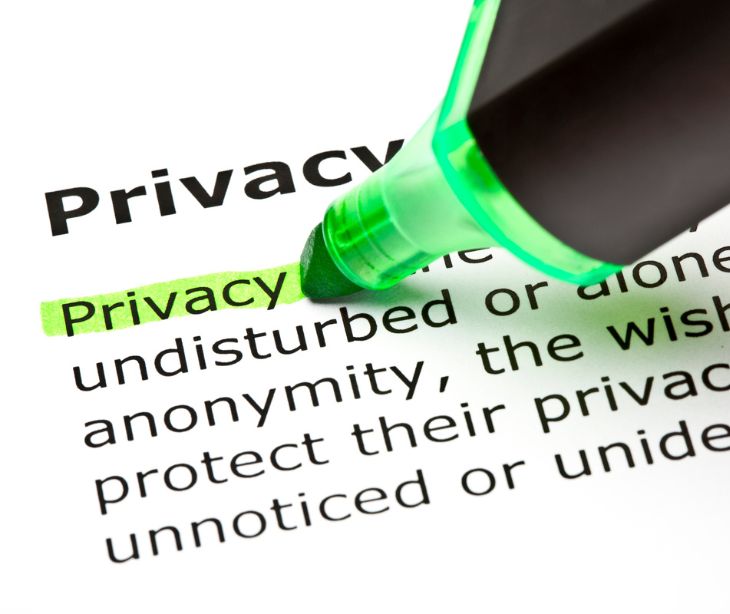
The HIPAA privacy rule defines marketing as “a communication about a product or service that encourages recipients of the communication to purchase or use the product or service.” However, HIPAA sets the standards for safeguarding sensitive patient data, including email marketing. Healthcare providers must understand HIPAA's definition of marketing to protect patient privacy and comply with regulations.
HIPAA and the privacy rule
The HIPAA privacy rule protects individuals' rights to privacy and controls the use and disclosure of their protected health information (PHI). This rule balances privacy and information sharing, maintaining public trust in the healthcare system.
According to the U.S. Department of Health and Human Services, the privacy rule gives individuals more control over their health information by setting limits on the use and disclosure of PHI. It allows individuals to request restrictions on the use and disclosure of their PHI and gives them the right to receive an accounting of disclosures made for purposes other than treatment, payment, and healthcare operations.
Related: What is the HIPAA Privacy Rule?
Defining marketing under HIPAA
“A communication about a product or service that encourages recipients of the communication to purchase or use the product or service.”
HIPAA's definition of marketing is broad and encompasses any communication encouraging recipients to purchase or use a product or service. This definition intentionally covers a wide range of healthcare communications that could potentially influence patients' decisions. HIPAA's marketing regulations aim to empower patients while enabling important healthcare-related communications.
According to the U.S. Department of Health and Human Services, the privacy rule generally requires covered entities to obtain written authorization from patients before using or disclosing their PHI for marketing purposes. This includes any communication that is considered marketing, such as promotional emails, newsletters, or targeted advertisements.
Exceptions to the marketing definition
While written authorization is the general rule for marketing communications under HIPAA, some exceptions promote flexible and efficient healthcare interactions. These exceptions allow certain types of communications without obtaining written authorization:
- Descriptions of health-related products or services: Covered entities can share information about their products or services without obtaining written authorization. This can include communications about enhancements to health plans or the introduction of new medical equipment.
- Communications for treatment purposes: HIPAA acknowledges the importance of communications aimed at an individual's treatment. Prescription refill reminders, referrals to specialists, and providing samples of prescription drugs are all considered treatment-related and exempt from the written authorization requirement.
- Case management and care coordination: In the interest of patient care, communications made for case management, care coordination, or recommendations for alternative treatments are not classified as marketing. These communications aim to provide necessary support and guidance to patients.
Marketing for compensation
HIPAA's privacy rule prohibits covered entities from disclosing PHI for marketing purposes to entities in exchange for direct or indirect compensation without securing individual authorization. This safeguard ensures that patients' health information isn't exploited for financial gain without explicit consent.
When marketing activities involve payment, covered entities must obtain written authorization from patients before disclosing their PHI. This requirement ensures transparency and protects patients' privacy rights.
Using business associates for marketing communications
HIPAA allows business associates to participate in marketing activities to streamline communication processes. However, covered entities must ensure that these business associates adhere to the established communication guidelines and comply with HIPAA regulations.
Business associates are individuals or organizations that perform certain functions or activities on behalf of a covered entity and handle PHI. They can include email marketing service providers, advertising agencies, or other entities involved in marketing communications. Covered entities must have a signed business associate agreement in place with these entities to ensure PHI is handled securely and in compliance with HIPAA regulations.
Best practices for complying with HIPAA's marketing regulations
To ensure compliance with HIPAA's marketing regulations, healthcare organizations should follow these best practices:
- Offer training to staff on HIPAA's marketing regulations to ensure they understand the requirements and guidelines.
- Develop explicit policies and procedures for marketing communications to provide clear guidance to employees.
- Acquire necessary authorizations for marketing activities as required by HIPAA.
- Prioritize the security of PHI and adhere to rigorous data handling practices to protect patient privacy.
Related: HIPAA Email Marketing: What You Need to Know
Real-world examples of HIPAA compliant marketing
To better understand how HIPAA's marketing regulations are applied in real-world scenarios, let's look at a few examples:
- Healthcare newsletter: A healthcare organization sends out a monthly newsletter to its patients, providing updates on new treatments, health tips, and wellness resources. As long as the newsletter does not promote specific products or services and is aimed at educating and informing patients, it would fall within the exceptions to HIPAA's marketing definition.
- Prescription reminder service: A pharmacy sends automated text messages to patients reminding them to refill their prescriptions. These messages are considered treatment-related communications and are exempt from the written authorization requirement.
- Educational webinars: A healthcare technology company hosts webinars to educate healthcare professionals about the benefits of its software solutions. Since the webinars are not intended to promote products or services directly to patients, they would not be classified as marketing under HIPAA.
See also: HIPAA Compliant Email: The Definitive Guide
FAQs
Can business associates be involved in marketing activities under HIPAA?
Yes, HIPAA allows the involvement of business associates in marketing activities. However, covered entities must have signed business associate agreements in place to ensure compliance with HIPAA regulations.
What types of information should not be included in marketing emails under HIPAA?
Marketing emails should not contain any protected health information (PHI) unless patients have provided explicit authorization. This includes information such as medical diagnoses, treatment history, or any other identifiable health information.
Can I use email marketing to promote healthcare services or products while remaining HIPAA compliant?
Yes, you can use email marketing to promote healthcare services or products while remaining HIPAA compliant. However, you must ensure that any emails containing PHI are handled securely and that individuals' privacy rights are protected. This may involve encrypting emails, obtaining consent for marketing communications, and providing clear opt-out options.
Subscribe to Paubox Weekly
Every Friday we'll bring you the most important news from Paubox. Our aim is to make you smarter, faster.




